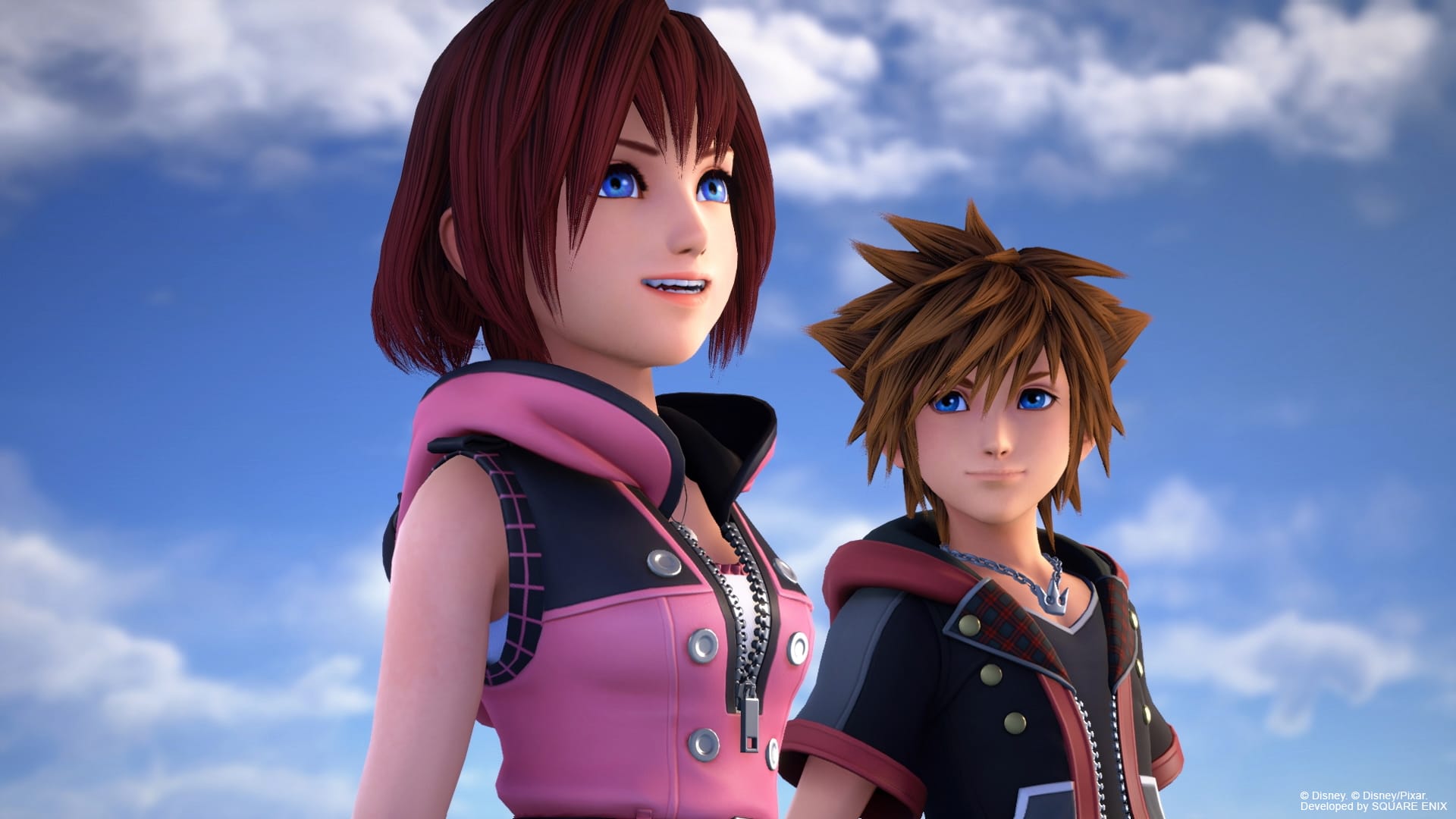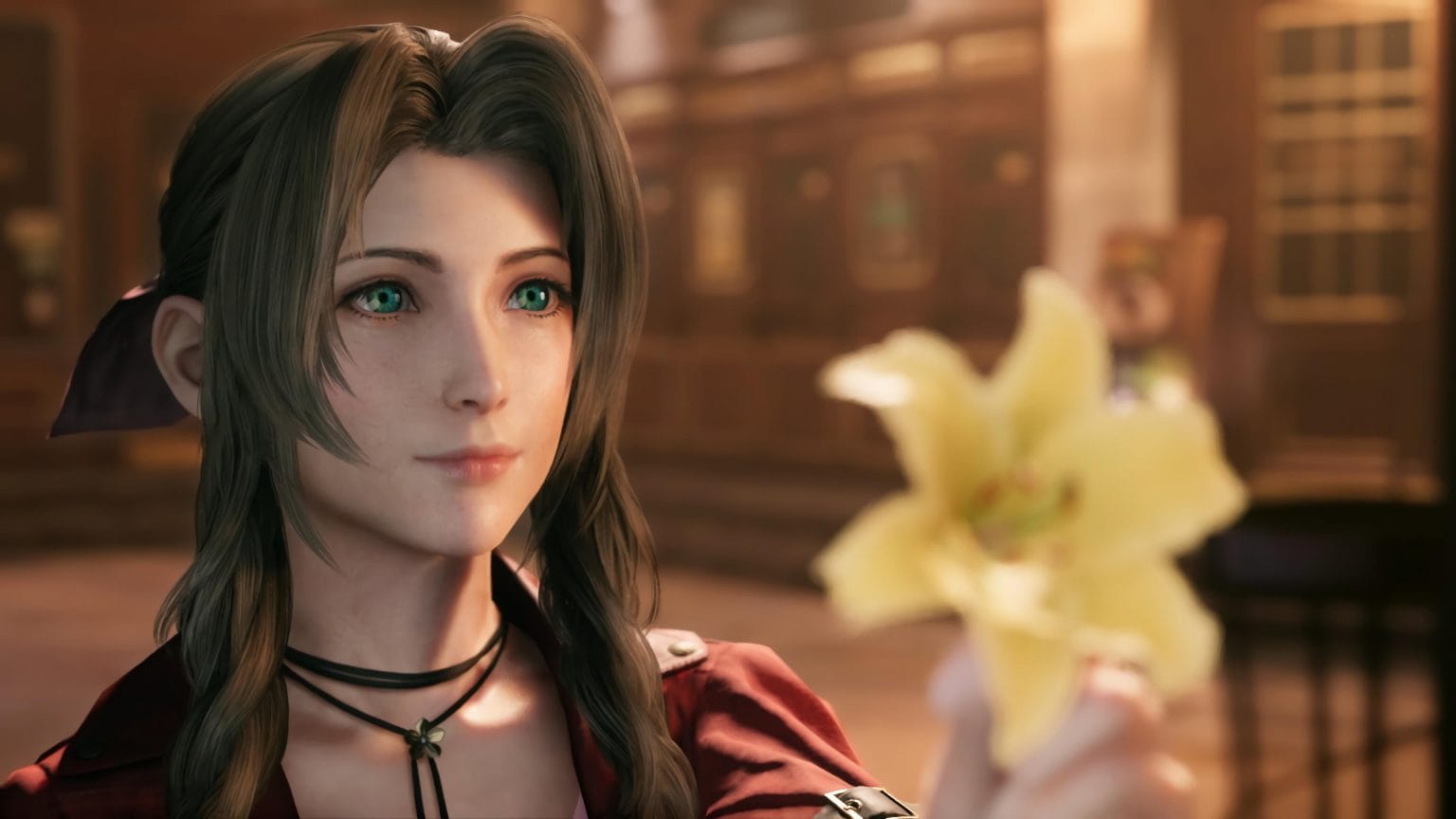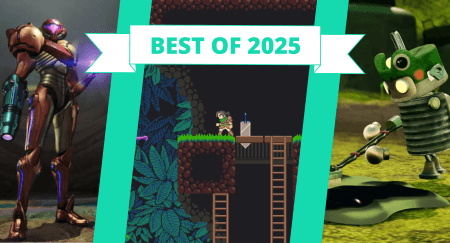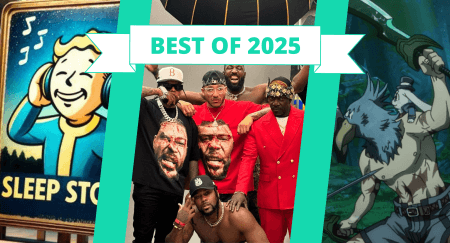In honor of International Women’s Day, I invited several Punished Backlog writers to ask me about my experiences as a woman in the gaming community.
The goal of this article is to engage in, and provide an example of, an honest and open discussion of sexual harassment and assault of women within or in relation to video games. My sincere hope is to create more awareness and understanding for this particular topic; to show that these experiences are very real, and that it’s okay to talk about them given consent and trust; and to dispel some misconceptions that might exist. We just want to add to the conversation.
Ahead of publication, I asked to remain anonymous. I absolutely do not make this request out of shame or cowardice. Ideally, I would feel comfortable enough to attach my real identity to this discussion to help reinforce that harassment and assault happen to real, actual people. However, I can imagine scenarios in which I would want to reserve the knowledge of certain experiences I’ve had. So at present, I’m just not willing to lend that amount of vulnerability to this article.
Here is our discussion in its entirety:
Anonymous: Ask away.
David Silbert: What’s the worst experience/interaction you’ve ever had playing a game online? Which game, mode, platform, etc.?
Anonymous: It’s hard to say specifically, as I don’t think I’ve ever played an online multiplayer game where my gender was known and I had a completely bad-interaction-free time. It’s tough to single out a moment as the worst when it’s more of a constant in my experience. This is why I stopped playing online games for several years.
If I had to pick, I’d say either the time some players chased me around Runescape calling me a number of derogatory, sexual names when I was probably 10 or 11 years old, or the one time I played Fortnite when some guys streaming on Twitch (so I knew there was an audience of people watching the interaction that I couldn’t see) made incessant comments about my gender the entire time in relation to my potential “skills” and general “rarity.” But, in my opinion, the worst interactions I’ve had happened in person.
David: What would you consider the most offensive/ignorant depiction of women or women’s rights you’ve seen in the content of a game?
Anonymous: To be honest, some of the more extreme examples that exist aren’t something that I’ve experienced personally. A really over the top example is one mentioned to me recently—Custer’s Revenge. That game is absolutely disgusting. I also recall a fair number of games I played as a kid that were designed with young girls in mind yet reinforced a lot of negative stereotypes about women.
In more current games, the worst depiction of women and women’s rights doesn’t belong to a single game, but rather to all the little things that go under the radar. In a sense, having one truly outstanding example of poor treatment of women in a game would actually be preferable these days. That’s because, if you pointed it out, people would agree with you and there’s a good chance that problem might be solved.
Rather, it’s the casual misogyny—and its terrifying consistency and persistence within video games that people let slide—that’s the problem in my eyes. It leads to the normalization and reinforcement of all kinds of little biases and stereotypes that can really be harmful when they’re perpetuated by an entire industry. Maybe I’ll come up with a fun little bullet point list of small, yet terrible depictions of women in games for this if I have the time. But then again, it’s not my job to find and pick out all the dumb portrayals of women in something I enjoy because I am a woman. I would encourage anyone to learn to identify such issues in any situation. Recognizing these little biases and stereotypes will help you not be an asshole if you get it right, I promise.
David: You’ve mentioned before that you’re not used to expressing your opinion on games before. Are there any striking moments you remember in particular about boys/men talking down to you about gaming/your opinion of games?
Anonymous: Yes! Many! And very importantly, not exclusively from folks of the male persuasion. I’ve gotten lots of in-passing comments that I didn’t talk back to because I used to be extremely embarrassed for expressing any interest in games. So much so that I would just never talk about it around that person, which gradually evolved into never talking about games with anyone, really. “No one can hurt you if you never give them a reason to,” was my line of thought for a long time. But that involves not doing or talking about something you love that you should be able to do without that kind of fear.
In the rare instances where I found myself in a discussion about games, I’ve encountered a lot of nasty little degradations of my opinion. I’ve been in game stores when I would be asked by other women if I was just looking for something for my boyfriend (which is both a sexist and heteronormative assumption). I’ve had other women try to explain to me that I was perpetuating misogyny by playing video games and had to argue why that is not at all the case.
I’ve had people of all different genders tell me I must play video games for attention, so I totally stopped talking about them because I was receiving too much negative attention and I never told anyone about it because I felt that I was the problem, not the people telling me this. I’ve been in video games stores where the employee at the register asked me if I thought I might like an easier game, a less violent game, or if I’d heard of the franchise before.
I hung out with a guy from my hometown who would constantly talk down to me while playing various games. He would lean on me and be generally too close the entire time, not talk to me at all for the majority of the year, and then try to hang out in person again only when I was in town. He showed up at my former workplace a couple times to try to talk to me. And I never really said anything because I both felt bad for him and believed what he was saying at the time. You’ll notice a couple common patterns here: people making gendered assumptions, and me believing a lot of the garbage people told me.

Sam Martinelli: Kotaku’s Maddy Myers said on a past Splitscreen podcast that she believes the story/lore of Kingdom Hearts receives a great deal of criticism largely because so many women/girls are into it, and it’s another way that the gaming patriarchy engages in arbitrary (yet male-dominated) gatekeeping. Are there any other games/franchises you think get unfairly criticized because their audience might skew more female? If so, which one(s)?
Anonymous: So we might be venturing a little outside the realm of my personal experiences here and into the wider world of gaming franchises and audiences. I would say almost anything “too cutesy” graphically, or even not particularly skill-based games, gets this sort of reputation. In my experience, the Kirby franchise gets this for sure.
Obviously I have a big problem with the correlation people assert between “girly” games and games that aren’t particularly challenging or skill-based. A game that involves a lot of skill isn’t the epitome of gaming, girls and women aren’t inherently unskilled because of their gender nor are boys and men inherently more skilled, etc, etc.
Sam: Is there a specific video game online community you’ve had an especially bad experience with? Also, is there a specific online community that you almost exclusively have had good experiences with?
Anonymous: I’ve already mentioned a couple communities I’ve had problems with, and that I pretty much didn’t engage with anything multiplayer after enough incidences. Honestly, while the online backlash is pretty difficult to deal with sometimes, the worst experiences I’ve had happened in person and had nothing to do with a specific game or community. Just the act of expressing any interest in video games broadly has proven to be a somewhat dangerous act.
As far as good experiences, I’m not going to lie: I haven’t had as many outright positive gaming experiences as I have had ones where I didn’t interact with anyone for fear of terrible people. It’s a pretty lonely way to play games. Skipping entire franchises; exclusively playing single-player modes; never really talking to anyone about games in person, all because you know that no matter what you do, someone will tell you you’re doing it wrong, you don’t belong, you’re not good enough, or just straight up sexualize you without consent… At a certain point you start to realize that the objection isn’t even to your own thoughts and opinions, but to your gender, which doesn’t even register you as a person in some people’s eyes.
I find there is sort of a compulsion to target specific games and communities when discussing the harassment and assault of women in video games, but I’m not certain this compulsion is necessarily useful. In my experience, the genesis of most if not all of the incidents I’ve encountered boil down to an individual going after/harassing/assaulting me primarily for being the sum of some stereotypes or bias that individual had about women or specifically women who play video games. Which is to say that in these interactions, I perceive the assailant as an individual whereas the assailant perceives me as a member of a group and not so much as an individual.
To direct attention at entire games and/or communities seems hugely unhelpful to me because, for the most part, it is not that every individual within communities are “toxic” so to speak, but rather that individuals who are or become sources of harassment and assault are allowed to exist within those spaces unchecked. The perceived importance that this game or that community is bad or toxic or dangerous minimizes the extent of individuals within that game/community who are completely civil. It can also perpetuate the idea that the onus of preventing harassment and assault rests on the shoulders of someone who could be a potential victim. This is a myth I believed for much too long, including after the strategy had failed me multiple times.
The problem of harassment lies within individuals at the end of the day. This problem intersects with communities when the community allows these individuals to exist rather than work to educate or restrict them. But this problem does not end with gaming spaces, and this makes things much more difficult to manage.
PJ Manning: You mentioned that certain communities have been harder than others to interact with, while ultimately settling on the idea that real life incidents have been the toughest. As an extension of that question, were there any games you’ve had to step away from completely for this reason? Related, were there any games you avoided picking up as to avoid potential harassment?
Anonymous: Only when I was younger and I didn’t realize there are usually ways to reach out for help when you encounter harassment in video games. There are, however, loads of games I never started or bought because they have multiplayer. It’s just become my least favorite way to play.
PJ: Have you ever lied about your gender or relationship status in lobbies or on forums to avoid harassment? To expand on the relationship aspect, I mean either fabricating an SO to stop people from asking you out, or covering up someone you were seeing as to prevent “rage.”
Anonymous: Ah, the old “I have a boyfriend/SO” defense mechanism? I’ve never lied about having an SO because that should not be a factor to a harasser, and online that probably wouldn’t shut one down anyways. I have never lied about my gender online, but I have constructed a more masculine sounding username and call everyone dude in chats. It is surprisingly effective in letting people assume I’m a guy.
PJ: There’s a rather annoying trend currently, where pockets of gamers have labeled games political for—in broad strokes—acknowledging other individuals than white, cisgendered, straight men. I feel like this is a relatively new stance. Games as a whole have branched out in terms of the stories and people they depict. Since the more-toxic conversations around games have changed, have you noticed the types of harassment changing as well? Or is it more or less the same shit, different decade?
Anonymous: It’s hard for me to say. Mostly because of the distance I usually put between myself and any game that could be a drag to play because of harassers. My best guess is that people will continue to harass others so long as there is a pocket of people as you say who hate a group of people. It may not be sexual harassment. Though that may be true, I don’t know. What I do know is that there are more and more ways to report harassment and more education about what harassment is.
Anna Hickey: What do you do to deal with harassment and/or assault? Do you have any suggestions for others?
Anonymous: The best suggestion I can give anyone who has experienced harassment or assault is never do what I did. I was very nervous to talk about this subject as if I’m some sort of expert when in reality I’ve made a lot of mistakes in how I’ve handled my own experiences. For years, whether digital or physical, when these experiences happened to me, I internalized it. I blamed myself for what had happened. I felt so ashamed of what had happened that I never told anyone. Or I told myself that I was weak for needing some support—that it wasn’t that bad and I should be able to deal with it on my own. I always thought that I had been the one in the wrong until much, much later than I should’ve. Sometimes I was left feeling so hurt and confused I managed to convince myself that it wasn’t really that bad and I was just being overly sensitive. Other times I wouldn’t even listen when I would hear anything contrary to what I incorrectly made myself believe.
Please, please, please, please never tell yourself or others these things, and if it happens anyway, try your best to fight these assertions (even though I know how hard that can be). If you have experienced sexual harassment or assault in any capacity, I need you to know from the bottom of my heart that you are not making it up, you have done nothing wrong, and that you are not made lesser or different by your experiences.
If you’ve done the same things I did, you can still work to get better—I’m putting myself out here like this to be proof of that. If you can, try to talk to someone who specializes in these matters or educate yourself independently. Start with these videos from Dr. Lindsey Doe, a clinical sexologist and sex educator who hosts the YouTube channel Sexplanations:
This channel has helped me more than I could’ve anticipated. It may not be particularly helpful to everyone, but even so it may be worth a try. Online therapy like BetterHelp or organizations like RAINN can also be useful resources. They can be more affordable than traditional therapy options, you don’t have to leave the house, and they allow for an incredibly flexible schedule, so there are some pluses (although BetterHelp wasn’t for me and I haven’t used RAINN personally).
One more thing about dealing with harassment and assault: Typically, for better or worse, you are in control of what happens next. You may choose to do nothing to follow up; you may choose to leave it up to your parents/guardians/friends, etc.; you may choose to involve the law or an organization about your incident. Not everyone will warn you that although there are lots and lots of options out there in terms of help, you will often be giving the responsibility of wading through these options and determining what you want to do next. You might already feel overwhelmed and just want to Alex Mack into a puddle for the rest of time, but unfortunately you might need to do some work beforehand. Part of what makes these horrible experiences so unfair is that the damage sort of comes in two parts—the event itself and the aftermath.
Dealing with harassment and assault takes a lot of work and time, so be patient and kind to yourself and others.
To support the work of the women who write for this website, check out these pieces on the Elder Scrolls timeline and the upcoming Cuphead DLC.
A video game outlet that blends quality words with inclusive voices. For business inquiries and review requests, reach us at press [at] punishedbacklog [dot] com.









